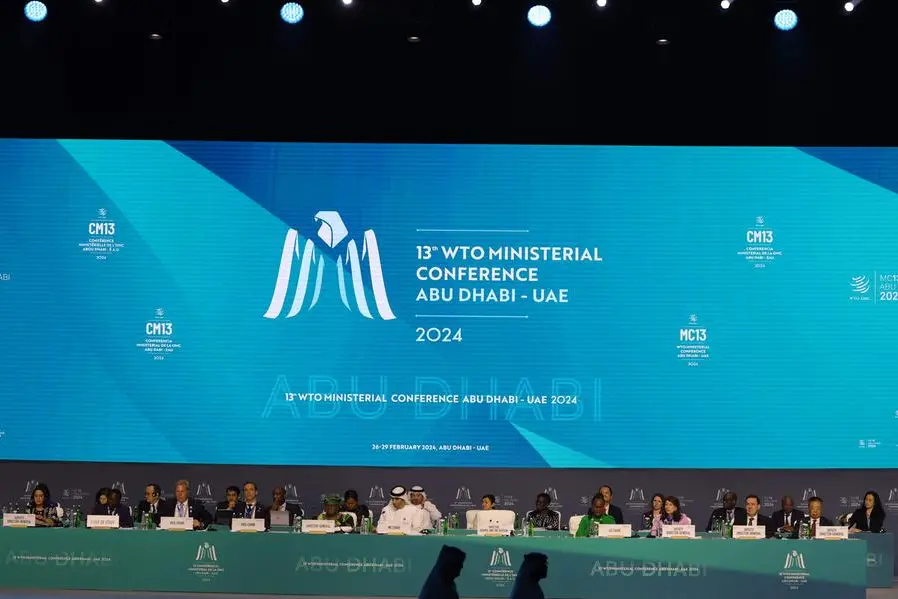PHOTO
The potential reelection of Donald Trump to the US presidency cast a shadow over this week's key meeting of the World Trade Organisation, a body he has attacked in the past.
The conference, held in Abu Dhabi, is an opportunity to reform the three-decade-old institution's strained settlement process for international trade disputes.
But despite attendance by ministers from around the globe, few are banking on a successful outcome, amid shaky geopolitics and major tensions between China and the United States.
"People are of course extremely worried that Trump will win and what will he do then? Will he pull the United States out of the WTO?," one diplomat said, speaking on condition of anonymity because of the sensitivity of the issue.
"It's hard to be very optimistic these days, but we try."
During Trump's first term, he blocked the WTO's ability to settle trade disputes, used a veto to hinder a leadership transition, and threatened to pull the US out of it - all the while launching a trade war with China.
Not until his successor Joe Biden arrived at the White House in 2021 was the deadlock cleared, allowing Nigerian Ngozi Okonjo-Iweala to take the helm of the 164-member organisation.
She has lowered expectations for the conference to produce any major institutional reform, but hopes to at least stress its importance as an international rules-based framework.
"If Trump wins we would have to go through the storm for 4 years" and try to minimise damage from the "disaster," a trade delegate said, also speaking anonymously for the same reasons.
- 'Everyone will suffer' -
Analysts say there is little the body could do to protect itself in such a scenario, with the US likely to act more unilaterally if Trump is reelected in November.
"The Americans are obsessed with what they see as extremely unfair Chinese competition, and as WTO rules don't change anything there, they've decided to act contrary to these rules", said Cedric Dupont from the Graduate Institute of International and Development Studies in Geneva.
"The WTO will find itself between the anvil and the hammer, and of course everyone will suffer, including the Americans", he added.
Sebastien Jean, associate director at the French Institute of International Relations, said the US election cycle is already hindering the country's participation at the WTO.
"It is a politically sensitive topic, and engagement brings risks to whoever touches it", he added.
As the Biden administration is unlikely to spend political capital on the issue, no one expects the American delegation, led by Trade Representative Katherine Tai, to make major concessions.
Progress on smaller common goals -- such as eliminating subsidies that contribute to overfishing, or balancing demands on food security -- could save the conference from failure.
US elections and Washington's stance are not the only obstacles getting in the way of agreements, however.
South Asian giant India -- which also faces a general election this spring -- as well as South Africa and China also maintain hardened positons at the body.
Many voices, including the head of the WTO, underline that the United States remains committed to the organisation, despite what may lie ahead.
"At a technical level, the US has been really busy in the WTO," said Peter Ungphakorn, a former senior information officer in the WTO Secretariat.
"The US has also been engaged constructively in a wide range of WTO activities, including in the fisheries subsidies negotiations, and it has made a number of proposals to strengthen how the WTO is working, for example on sanitary and phytosanitary measures and technical barriers to trade", he added.





















